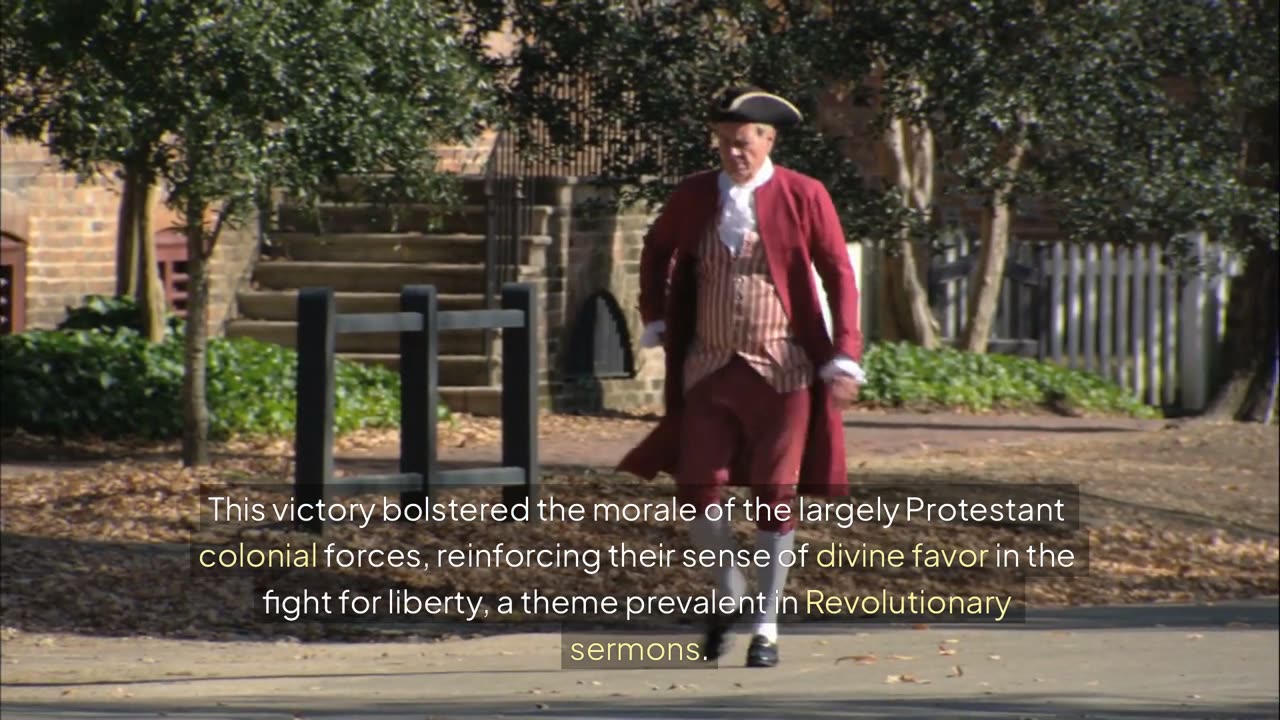Premium Only Content

March 17th in Christ
Here are some notable events in Protestant Christian history that occurred on March 17th, based on historical records:
1649: The Rump Parliament in England abolished the House of Lords, a significant step during the English Civil War and Commonwealth period. This act was driven by Puritan-led Parliamentarians, many of whom were staunch Protestants opposing the monarchy and the Anglican establishment tied to the Lords. The abolition reflected the radical Protestant push for a reformed governance structure, free from what they saw as Catholic-leaning traditions, and marked a high point of Puritan influence in reshaping English society along more egalitarian, Protestant lines.
1737: English evangelist George Whitefield delivered his first sermon in America at St. Mary-le-Bow in Philadelphia, just three days after arriving in the colonies. A key figure in the Great Awakening, Whitefield’s preaching sparked widespread revival among Protestant denominations, emphasizing personal conversion and emotional engagement over institutional formalism. His tour galvanized colonial Protestantism, bridging divides between denominations like Presbyterians, Baptists, and Congregationalists, and laid groundwork for a distinctly American evangelical identity.
1776: During the American Revolution, British forces evacuated Boston, ending the Siege of Boston after George Washington fortified Dorchester Heights. Many of the American troops and leaders, including Washington, were Protestants—often Congregationalists or Presbyterians—whose religious convictions fueled their resistance to British rule, seen as tied to Anglican oppression. This victory bolstered the morale of the largely Protestant colonial forces, reinforcing their sense of divine favor in the fight for liberty, a theme prevalent in Revolutionary sermons.
These events highlight Protestantism’s role in political upheaval, revivalism, and revolutionary fervor on March 17th across different centuries. They reflect the movement’s emphasis on reform, personal faith, and resistance to perceived tyranny, shaping both religious and secular history.
-
 1:20:39
1:20:39
Flyover Conservatives
14 hours agoFrom Demonic Deception to Divine Direction: Sid Roth’s Radical Encounter With God | FOC Show
34K1 -
 LIVE
LIVE
Chrissie Mayr
3 hours agoChrissie Mayr Reactions to Charlie Kirk, Liberal Celebrations, and More
498 watching -
 1:05:46
1:05:46
AlaskanBallistics
3 hours ago $0.74 earnedRemembering Charlie Kirk
29.5K6 -
 1:23:27
1:23:27
Glenn Greenwald
6 hours agoNetanyahu’s Crude Exploitation of Charlie Kirk’s Death to Get the American Right Back into Line; Plus: Q&A With Glenn on Charlie Kirk's Assassination, Online Civil Discourse, and More | SYSTEM UPDATE #514
194K130 -
 4:10:25
4:10:25
Nerdrotic
9 hours ago $0.99 earnedCulture Is VITAL! Streaming BUST, Warner Bros. Buyout | Friday Night Tights 371 with Vara Dark
209K24 -
 1:02:32
1:02:32
BonginoReport
7 hours agoCharlie Kirk’s Assassin In Custody, Details Emerge - Nightly Scroll w/ Hayley Caronia (Ep.133)
192K191 -
 LIVE
LIVE
LFA TV
1 day agoKILLER CAUGHT LIVE PRESSER! - FRIDAY 9/12/25
574 watching -
 26:08
26:08
The Mel K Show
7 hours agoMel K & Ken Silva | Updates: Trump Attempted Assassination Trial, North Carolina Investigation, & Silver Bump! | 9-12-25
49.2K5 -
 1:24:33
1:24:33
Kim Iversen
7 hours agoBlaming Nick Fuentes For Charlie Kirk's Death In 3...2...1...
115K314 -
 1:08:42
1:08:42
Roseanne Barr
11 hours agoFor Charlie…| The Roseanne Barr Podcast #115
216K229